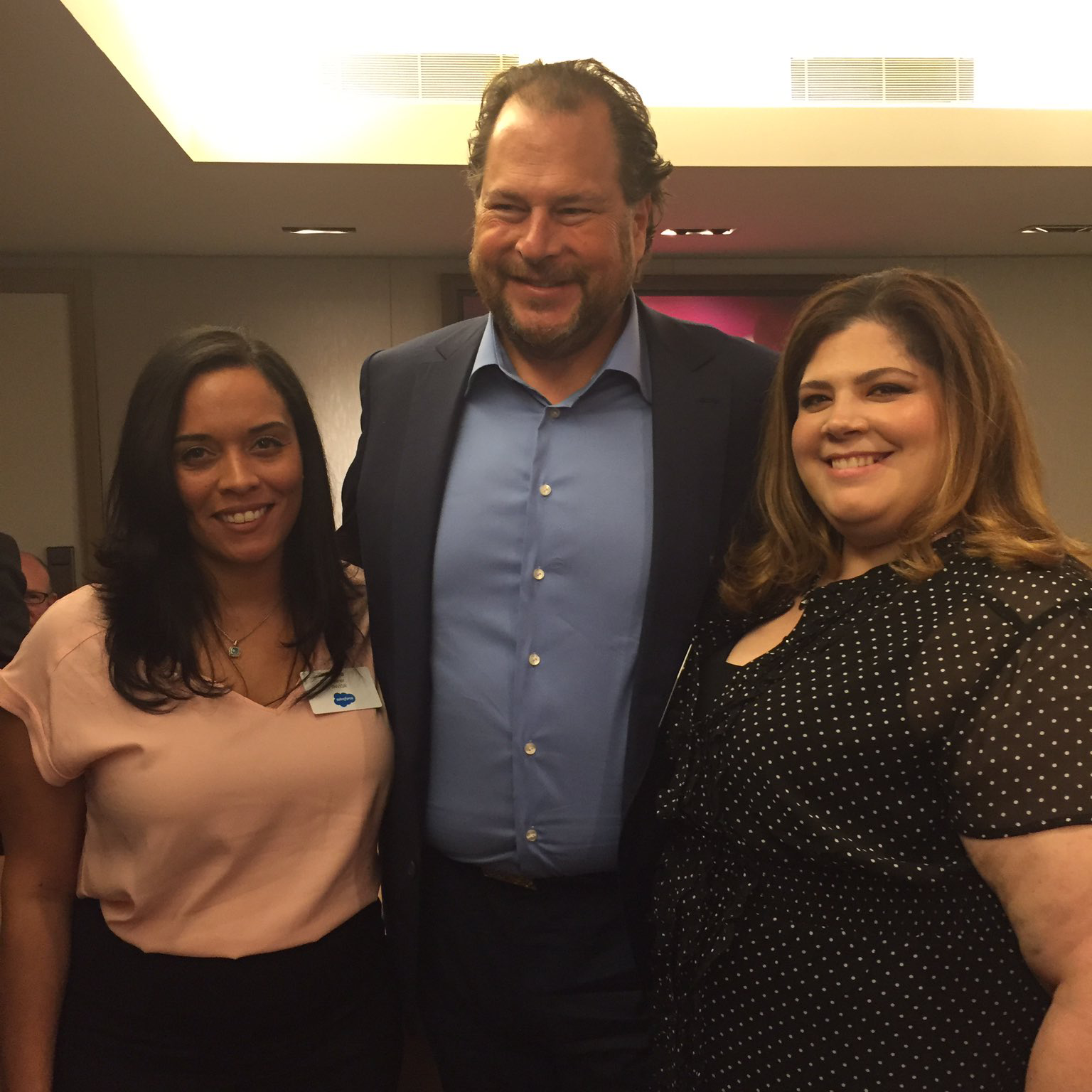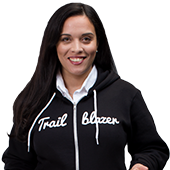Meet Selina, champion of education equality

I never dreamed I’d have a career in tech, but once I built my first database and got into Salesforce, the trajectory of my life and ultimately my family was changed forever.
How did you get your start in tech?
My first couple of jobs taught me crucial lessons about managing data. My first job was at Bank of America, I worked on the Branch Operations team. I learned how to be data-driven from tracking the flow of money. When I was in college, I worked on the Enrollment Management team. Because of my previous work, I had my eyes opened to the benefits of migrating from spreadsheets to an object-oriented database. Once I moved on to graduate school for my MBA, I decided to pursue MIS classes because I knew that having tech skills in business meant I would have an advantage and hopefully a job once I graduated!
How did you learn about Salesforce?
I was working at a foundation dedicated to helping disadvantaged students go to college. When they hired me, they had thousands of rows of data across multiple spreadsheets. I researched options for managing our data and landed on a solution. We had considered Salesforce, but we chose another option since the consultant we were working with specialized in using a different platform. After three months of use, requests for changes started rolling in. That solution wasn’t working for us since it was a struggle to do simple things like add fields or build custom reports and dashboards. That’s when I remembered Salesforce. I googled how-to videos and studied the Force.com Fundamentals book. I signed up for a trial version and rebuilt everything in Salesforce. That foundation is still a client of mine and a happy Salesforce customer to this day. After this success, I ended up making a career out of Salesforce consulting.
How did this experience impact your life?
I grew up the oldest of 12 children in a low-income, urban environment in NYC. Technology was not something any of us thought about. I never dreamed I’d have a career in tech, but once I built my first database and got into Salesforce, the trajectory of my life and ultimately my family was changed forever. I was the first person in my family to go to college. Now four of my sisters have. The ripple effect is real.
What was your biggest challenge?
I applied to grad school because one of my college professors told me, “If you win, we all win.” I was motivated to go but I didn’t realize how difficult it would be to get in. Apparently it is a statistically proven fact that minority and low-income students traditionally don’t do well on standardized tests like the GMAT. The first time I sat for the GMAT, I bombed. I studied for two years in order to go back and take it again. When I did, my score improved by 100 points. A big win for me but when I applied to graduate school, I was denied. After two grueling years of studying I wasn't going to just give up. I went to the school to plead my case to the Dean. I requested a re-review of my application. I told them that I belonged there and I explained all of the things I had done over the last two years. The school ended up accepting me and I graduated amongst the top of my class.
We can use the power of Trailhead to improve our careers, yes, but we can also use the power of Trailhead to give back to our communities.
Which project are you most proud of?
My true passion is education equality. I am most proud of my work in support of education access. I was able to bring my Salesforce skills to NYC and help an organization support 10,000 disadvantaged students on their quest educational attainment. The organization was running successful programs that enabled almost 100% of their students to apply and be accepted to college upon graduating high school. It was unreal. But fall came around and 20% of those students weren’t enrolling in college. Luckily, we had been tracking tons of data points for each student, so we were able to pull Salesforce reports to investigate what was going on. It turned out that most of the problems were as simple as a student not being able to afford books or a metrocard. Without clear data, we might never have been able to pluck this low-hanging fruit and affect immediate change. That little report in Salesforce also allowed us to focus our attention on teaching those students the important lesson of self-advocacy. Ask for what you need! Based on what we learned, we started a summer program to make sure these students didn’t fall through the cracks.
How do you use your skills to give back?
I’ve always had a vision that one day when I “made it,” I would go back and help others from my community to figure out how to do the same. I partnered with my undergraduate college and started a Salesforce bootcamp using Trailhead. We’ve educated 70 students so far. One amazing person from the program is now my mentee. He’s currently gaining more Salesforce experience by helping Meals on Wheels in New Rochelle to build out their Salesforce instance with my guidance and support. He’s also hitting the trails with a plan to take his certification exam in December. He’s only one person, but imagine the direct impact he’ll have on his community. Now multiply that by hundreds of students. That’s my vision.
How can other Trailblazers give back?
My goal is to take the Salesforce bootcamp program and make it available to other Trailblazers who want to affect change in their own community. I care about educating disadvantaged populations. What do you care about? Maybe you’re passionate about educating mothers who are out of the workforce or veterans who are returning to the workforce. Maybe you want to help retirees retool themselves. Think about what’s happening in your community. There are so many important ideas. We can use the power of Trailhead to improve our careers, yes, but we can also use the power of Trailhead to give back to our communities.
We all get caught up in our day to day. But being a Trailblazer reminds us to take a step back and give back. That’s what truly defines success for me. When someone calls me a Trailblazer, it’s a reminder that I have to be just that.
How do you make time for Trailhead?
I have to. It’s the reason why I say that Trailhead, while easy, is not easy. In order to be successful in this industry, you need to be committed to continually improving your skillset. You need to constantly learn in order to keep up with the changing platform. The way Trailhead is set up, I can tackle it in bite-sized pieces. I can do 20 mins today, 20 mins tomorrow, and so on to get it done. It allows you to get through advanced content more quickly. I found the time by focusing on my goal of improving my skills to be a better admin and consultant. That’s what I find so interesting about Trailhead. Earning badges has become a thing. Recruiters are looking for it. When recruiters contact me about Salesforce positions, they always ask me about my Trailhead badges. All of a sudden, you have a free, accessible, hands-on on tool that helps you stand out in the job market with in-demand skills. How many doors will Trailhead open for other people?
What does being a Trailblazer mean to you?
I finally got my Trailblazer hoodie and I wear it all the time. It means a lot to me for a lot of reasons. I’m one of the few people that made it out of my community. A lot of folks never do, but maybe they could have. I look for potential. Maybe I can be the person to help them find their way. Me, I’m ready to kick down any doors in my way. Not everyone is that way. It’s my destiny to help others do the same. As a Trailblazer, I’m creating the path through trial and error. Being a Trailblazer means the world to me. We use the power of the platform to elevate ourselves. We need to share this with other people who are coming behind us. We all get caught up in our day to day. But being a Trailblazer reminds us to take a step back and give back. That’s what truly defines success for me. When someone calls me a Trailblazer, it’s a reminder that I have to be just that.


